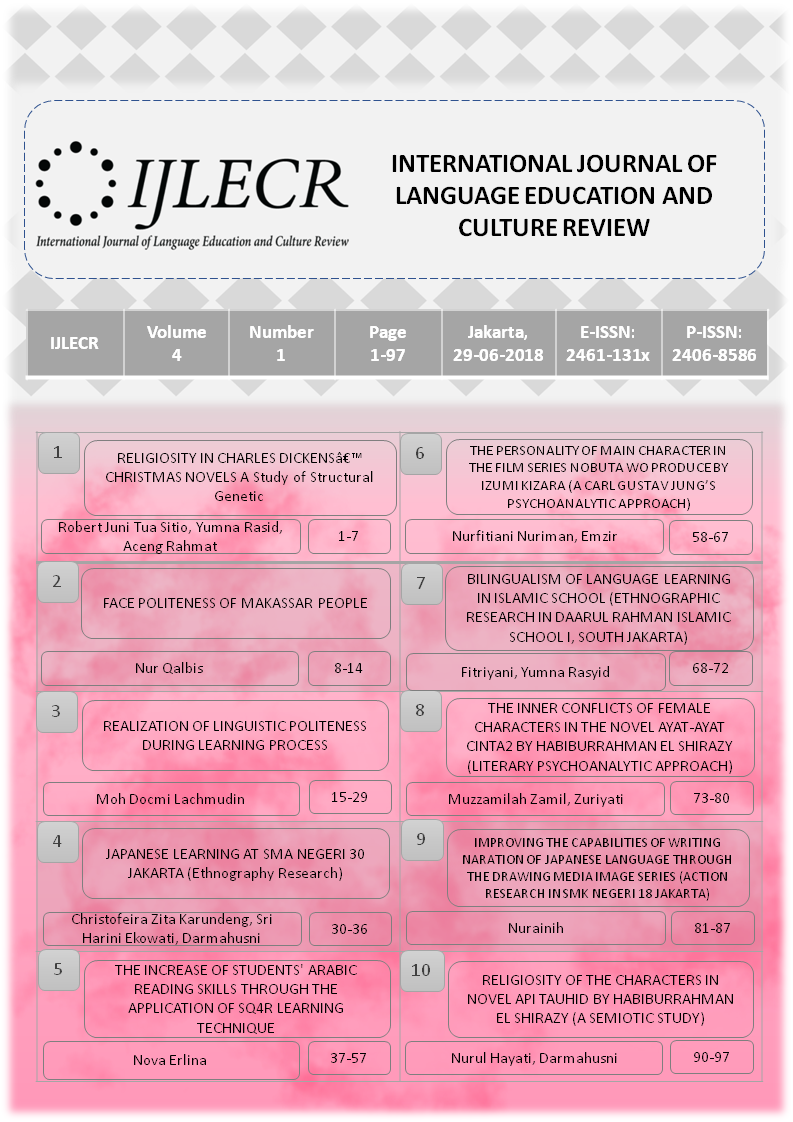REALIZATION OF LINGUISTIC POLITENESS DURING LEARNING PROCESS
DOI:
https://doi.org/10.21009/IJLECR.041.03Kata Kunci:
linguistic politeness,, form, learning processAbstrak
t This research aims to figure out principles of linguistic politeness during learning process at MAN Model Gorontalo through the realization of linguistic politeness forms. To find meanings of problematic facts existing, the descriptive qualitative approach was applied. Data were collected by employing the observation method with the tapping technique consisting of data recording and writing and advanced technique that was the uninvolved conversation observation technique and analyzed using the qualitative technique with steps as follows: (1) Repetitive data reading, (2) Data identifying, (3) Data coding, (4) Data grouping, (5) Data analyzing, (6) Finding interpreting, and (7) Conclusion drawing. Results of the research show that linguistic politeness forms during learning process are realized by diction use (pronouns, addressing terms, and positive response words) and utterance use (declarative, interrogative, and imperative) with various politeness levels. The research findings point out that linguistic politeness during learning process at MAN Model Gorontalo consists of universal and formal principles








